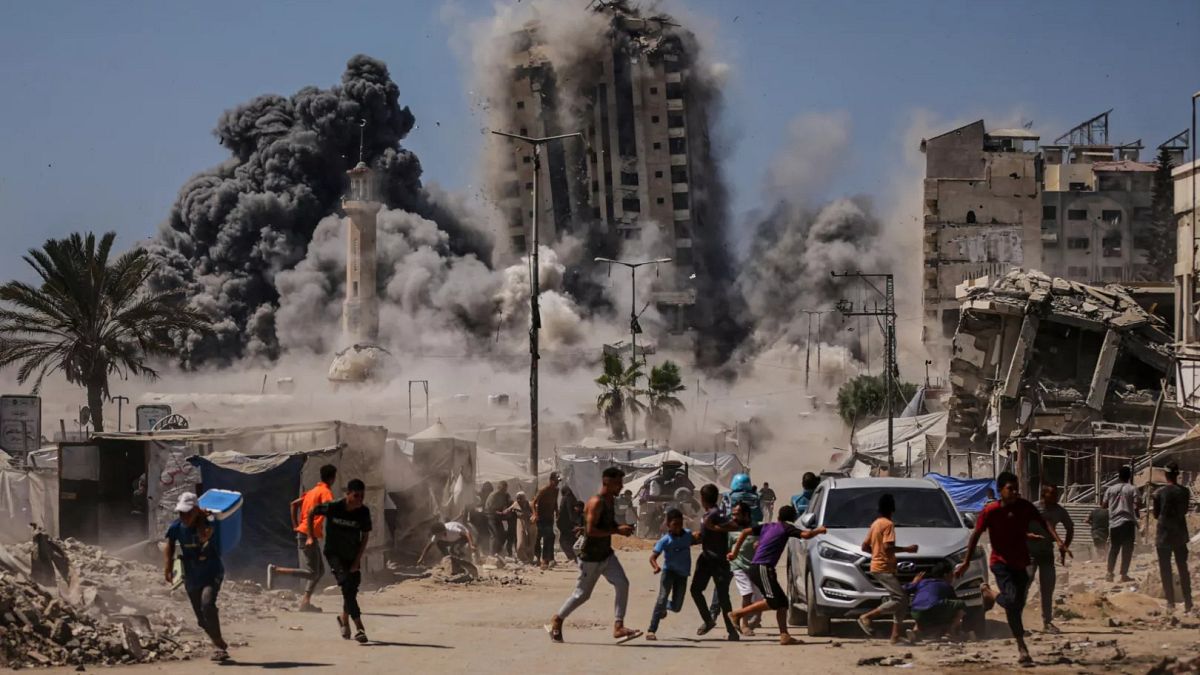

In recent days, global conversations have centered around pressing international issues, including the conflict in Gaza, developments in Ukraine, and the broader geopolitical landscape affecting both regions. These discussions reflect the intricate balance of global diplomacy and highlight the importance of careful dialogue and cooperation among nations.
In the heart of Europe, Teresa Ribera, a prominent European Union Commissioner, has sparked significant discourse by publicly using the term “genocide” to describe Israel’s military operations in Gaza. Ribera’s remarks underscore the intense scrutiny and criticism Israel faces regarding its ongoing actions in the region. The EU as a body has been cautious, distancing itself from Ribera’s statement while reiterating its commitment to ensuring peace and security in the Middle East.
The issue of Gaza also entwines with broader geopolitical moves, as illustrated by the recent US State Department’s decision to impose sanctions on certain non-governmental organizations linked to an International Criminal Court probe into alleged Israeli war crimes. Meanwhile, the UK is amidst its own reckoning, facing criticism from an independent tribunal for reportedly ignoring its obligation to prevent genocide in the Gaza conflict.
A separate but equally poignant development sees families across Israel commemorating 700 days since the devastating Hamas attacks of October 7. Their gathering serves both as an act of remembrance and a plea for the Israeli government to prioritize the safe return of hostages allegedly held in Gaza over further military actions.
Simultaneously, echoes of conflict reverberate in Eastern Europe, where tensions between Ukraine and Russia remain acute. Russian President Vladimir Putin has made headlines with his stern declaration that foreign troops stationed in Ukraine would become “legitimate targets” for Russian military strikes. This statement follows a proposal by French President Emmanuel Macron for postwar support in Ukraine, which hints at a potential role for NATO forces. Such developments highlight the delicate chessboard of international relations, with each move carefully measured against the backdrop of existing tensions.
As these challenges unfold, global diplomacy continues to play a decisive role in shaping outcomes. The United States and the United Nations are actively discussing a reconstruction plan for Gaza, focusing on disarmament and peacebuilding, to be presented at the upcoming UN General Assembly. This plan aims to forestall conflict at the assembly, where several nations, including the UK and France, plan to recognize the state of Palestine. This diplomatic initiative seeks to balance the recognition of Palestinian statehood with practical steps toward lasting peace in the region.
The interwoven narratives of Gaza and Ukraine encapsulate broader questions of sovereignty, human rights, and international law. They serve as a reminder of the interconnectedness of global challenges and the importance of collaborative efforts to address them. As the world watches, the outcomes of these discussions will likely have lasting implications for international diplomacy and peace efforts worldwide.
Source: {link}
